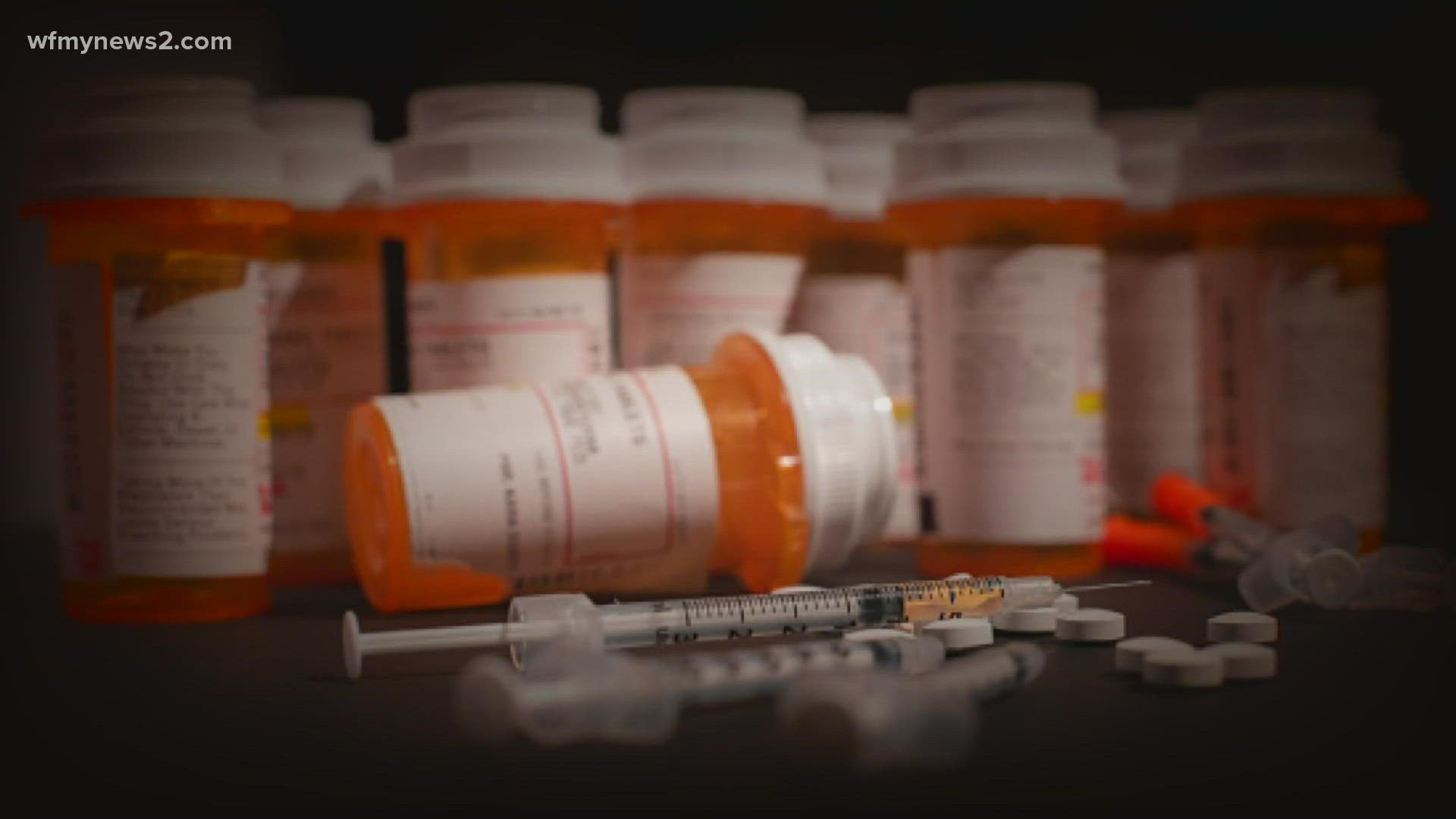GUILFORD COUNTY, N.C. — There's a renewed focus on the epidemic that swept across our nation before the coronavirus, that would be the opioid epidemic. First responders say overdoses are on the rise.
Overdose calls in Guilford County have consistently increased the past three years. In 2019 EMS said they responded to 910 overdoses.
In 2020, they said they responded to 1,060.
So far this year, EMS said they have responded to 1,074 opioid-related overdoses, and we've still got two months to go.
"Unfortunately we had an opioid epidemic prior to a pandemic and it might have somewhat suppressed the real nature of the urgency of this situation in our community," Guilford County Emergency Services Director Jim Albright said.
Overdose calls are happening way too often for Albright.
"As of this week we've already surpassed the number from last year," Albright said.
The City of Greensboro is also seeing a rise. According to Greensboro Police Department, there's been a 28% increase.
"One of the things that are often forgotten is that during the pandemic it caused tremendous amounts of social isolation and it also caused increased anxiety," Albright said.
After an overdose, hopefully, comes treatment.
Mike Yow is the President and CEO of Fellowship Hall in Greensboro. It's a facility for people dealing with substance abuse.
"Everything I'm seeing or that we are aware of in the rise in overdose is directly related to the contamination of the drug supply, and then after the overdose, people can't access care," Yow said. "It's just a terrible situation."
Yow said calls from people seeking treatment have increased around 30% to 40%. He said many of them don't have access to resources.
"The need for care has probably never been greater and the inability to access care has never been worse," Yow said.
It's another hurdle in an epidemic that's getting worse.
The substance abuse and mental health helpline is a great resource. The number is 1-800-665-HELP. It's free, confidential, and available 24/7.

